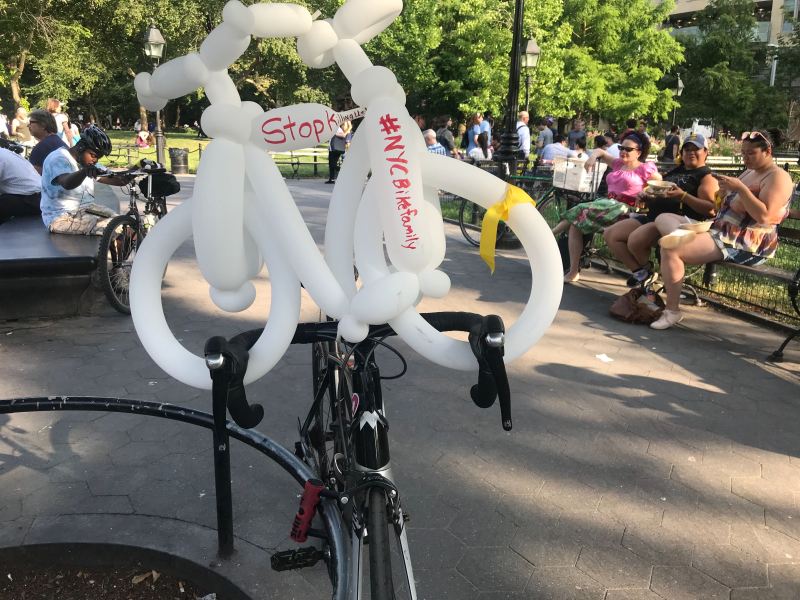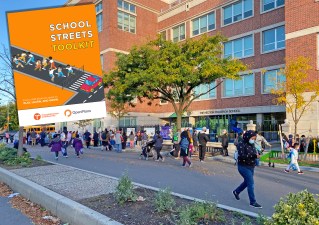Updated: Why We ‘Die-In’ Tonight
Tonight, we gather to mourn and demand action: No more dead on NYC streets.


Tonight, 1,000 New Yorkers are going to gather in Washington Square Park to demand action from the city in light of the surge in cyclist fatalities this year. We are a little more than halfway through 2019, and we have already seen 15 people killed while riding bikes on our streets, compared to 10 in all of 2018. The die-in will be hosted by over a dozen leading bike and bike-adjacent organizations, a coalition we’re calling the New York City Bike Family.
As we do so, we remember Hugo Alexander Sinto Garcia, Hector Ayala, Susan Moses, Chaim Joseph, Aurilla Lawrence, Robert Spencer, Pedro Tepozteco, Victor Ang, Kenichi Nakagawa, Robert Sommer, Yisroel Schwartz, Mohammed Abdullah, Robyn Hightman, Ernest Askew, and Devra Freelander. We also remember Moshe Yehuda Wolpin, a 14-year-old who was hit by a car three years ago while biking to yeshiva, but succumbed to his injuries last week.
Washington Square Park is hallowed ground for the safe streets movement. It reminds us of a choice that New York City’s leaders made 60 years ago, when the park closed to traffic, and was transformed into the thriving public space it is now. Robert Moses intended a new Washington Square Highway to further bisect the park, and ultimately connect with his plan for a city-destroying Lower Manhattan Expressway. It seems absurd to us now, to look back on black-and-white photos of cars jammed end to end under the arch, and of the looming threat of an elevated highway running from the East Side through Greenwich Village, but we avoided that alternate reality thanks to the advocates who took aggressive political action.
We have heard recently of the need for “balance” on our streets, and have been told that we need an “all of the above” approach to transportation, which naturally, includes maintaining level-of-service for single-occupancy vehicle.

If our goal is to actually achieve streets that work for a vast majority of New Yorkers, this outdated approach is a dead end. Ultimately, the balance of our streets should be tilted in favor of people — not the cars that clog our streets and hog our curbs. Ever greater reclamation of street space is the answer — like we reclaimed Washington Square Park from the automobile six decades ago and never looked back.
Not every neighborhood was as successful in fighting off Moses. Across the five boroughs, from Sunset Park to the South Bronx, there were neighbors who fought Moses just as hard as the relatively privileged West Village residents, but lost. In so doing, they lost their homes and neighborhoods because they didn’t have the same access to political power.
Likewise, 11 of the 15 cyclists were killed this year were located in Central and Southern Brooklyn, whose streets have been missing out on the protected bike infrastructure enjoyed elsewhere in the city. We can’t reach the goal of Vision Zero if street designs aren’t applied equitably.
Last week, Mayor de Blasio tasked DOT Commissioner Polly Trottenberg with coming up with an emergency bicycle safety plan. That’s good news. We will have more by way of specific recommendations soon, but the city must know we are united in grief, we are united in anger, we are united in demanding bold action.
We will be watching closely as the plan is unveiled, and we will not accept either tepid ideas or old plans that have been warmed over. The danger we face every day on our streets is systemic, and we demand systemic change in kind.
Ellen McDermott is co-interim executive director of Transportation Alternatives.
